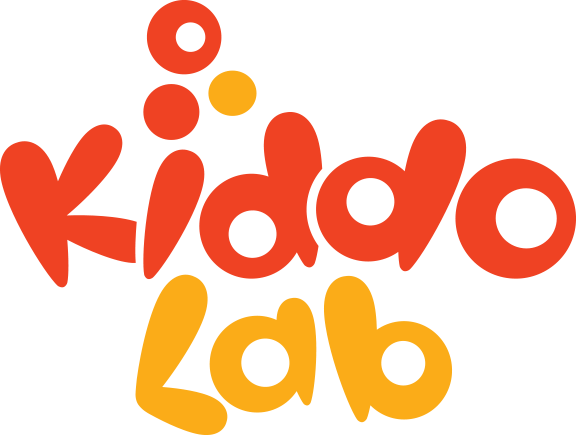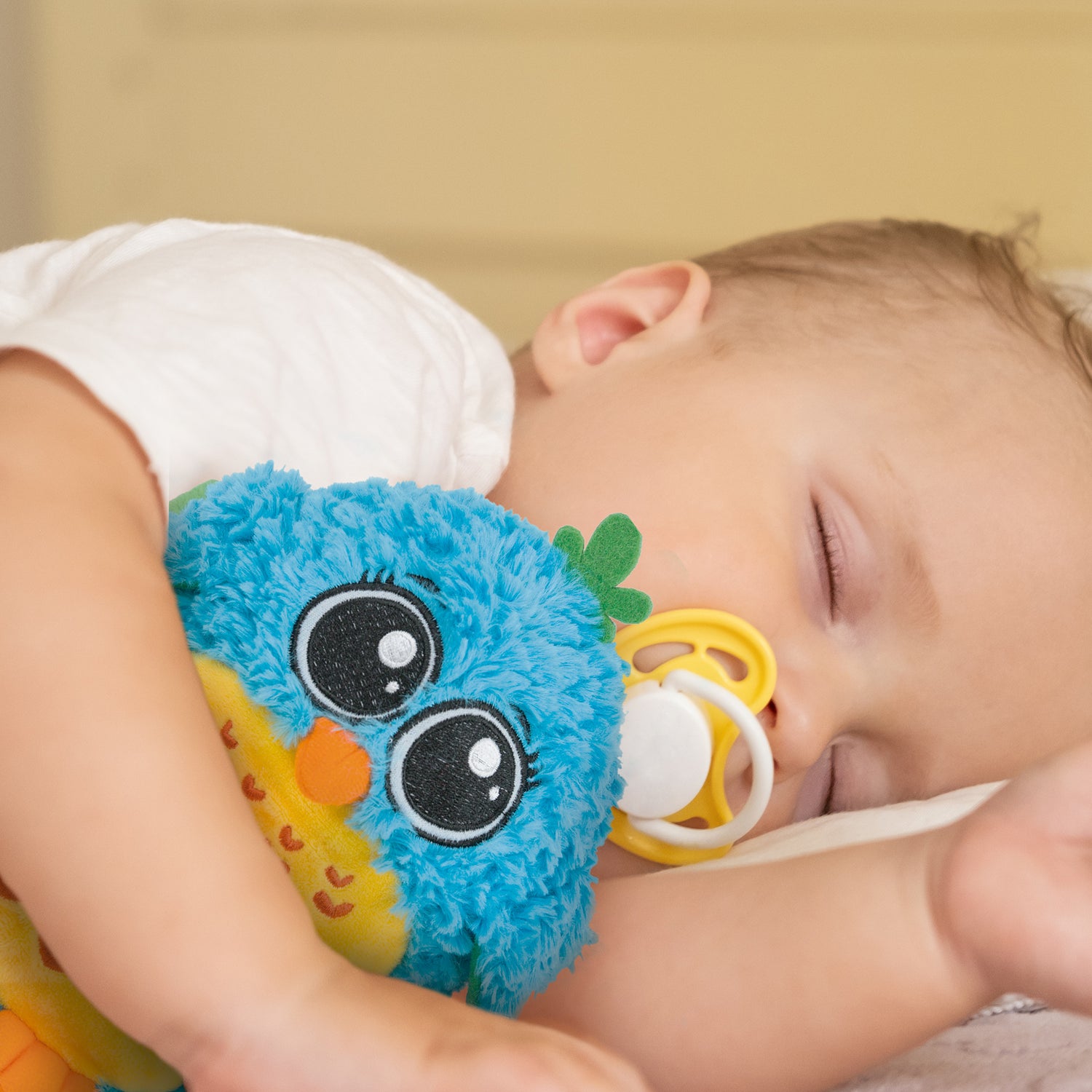The Importance of Teaching Personal Boundaries
In the journey of parenting, one of the most crucial lessons to impart to our children is the concept of personal boundaries. This knowledge not only safeguards them but also teaches respect for others. Personal boundaries encompass physical space, emotional limits, and appropriate social interactions.
Why Boundaries Matter:
Teaching personal boundaries helps children understand their own comfort levels and how to express them. It also aids in recognizing and respecting the boundaries set by others, laying a foundation for empathetic and respectful interactions as they grow.
Kiddolab's Role in Boundary Education
Kiddolab, a pioneer in educational toys for children aged 18 months and up, recognizes the importance of early boundary education. Their toys are designed to facilitate learning about personal space and mutual respect in a fun and engaging manner.

Educational Toys for Boundary Learning:
Kiddolab’s range includes toys that require sharing and turn-taking, subtly teaching children about respecting others' space and belongings. These toys provide practical experiences in understanding and maintaining boundaries during play.
Practical Tips for Parents
-
Start Early: Begin discussions about boundaries at a young age. Simple concepts like not touching without permission can be introduced early.
-
Use Clear Language: Be specific when talking about boundaries. Use age-appropriate language to ensure your child understands.
-
Model Respectful Behavior: Children learn by example. Show them how you respect others' boundaries in your daily interactions.
Reinforcing Boundaries Through Play
Play is a powerful tool in a child's learning process. Integrating lessons about personal boundaries into playtime can make the learning experience enjoyable and memorable.
Boundary Learning with Kiddolab Toys:
Utilize Kiddolab toys to create scenarios where your child can practice setting and respecting boundaries. For example, use role-playing games to simulate social interactions where they need to consider their own and others’ personal space.

A Key to Understanding Boundaries
Teaching empathy is integral to understanding personal boundaries. Empathy allows children to perceive and respect the feelings of others, a crucial aspect of recognizing boundaries.
Cultivating Empathy:
- Role-Playing Games: Use Kiddolab toys for role-playing activities that encourage children to put themselves in others' shoes. This can help them understand how their actions affect others.
- Emotion-Themed Toys: Select toys that depict various emotions, such as Kiddolab's interactive dolls, to discuss how certain actions might make others feel.
Setting Consistent Boundaries at Home
Consistency in setting and enforcing boundaries at home lays the groundwork for children to understand and respect them in other environments.
Creating a Consistent Environment:
- Routine: Establish a routine using Kiddolab educational toys, where certain rules are consistently applied, like taking turns or respecting a toy's 'personal space'.
- Clear Rules: Define clear, consistent rules for playtime, using Kiddolab toys to reinforce these rules in a fun and engaging way.
Encouraging Self-Expression and Assertiveness
Encouraging children to express their feelings and thoughts assertively is vital in teaching them to set and communicate their own boundaries.
Fostering Assertiveness:
- Language Skills: Utilize Kiddolab's language development toys to enhance your child’s ability to express themselves clearly and confidently.
- Confidence-Building Toys: Choose toys that build confidence, like puzzles or building blocks, encouraging children to voice their opinions and preferences during play.

Kiddolab’s Interactive Toys in Boundary Setting
Kiddolab’s interactive toys can be a vital tool in teaching boundary setting and respect. Interactive playsets encourage children to engage in scenarios where they need to consider and respect personal boundaries.
Interactive Learning with Kiddolab:
- Sharing and Cooperation: Use playsets that require sharing and cooperation, teaching children to negotiate and respect each other's space and turns.
- Scenario-Based Play: Create scenarios using Kiddolab toys where children can practice saying 'no' in a safe and controlled environment, reinforcing the concept of personal boundaries.
The Role of Positive Reinforcement in Boundary Setting
Positive reinforcement is an effective tool in encouraging children to respect personal boundaries. Praising and rewarding children when they successfully understand and apply boundary concepts reinforces their importance.
Utilizing Positive Reinforcement:
- Reward with Kiddolab Toys: Use Kiddolab toys as a reward for respecting boundaries. For instance, after demonstrating good boundary-setting in play, allow extra time with a favorite Kiddolab toy.
- Verbal Praise: Compliment children when they show respect for others' boundaries, emphasizing the positive impact of their behavior.
Incorporating Boundaries in Daily Activities
Integrating lessons about personal boundaries into daily activities makes the concept a natural part of a child’s life, thereby reinforcing its importance.
Daily Practice with Kiddolab Toys:
- Mealtime and Bedtime Routines: Use Kiddolab’s interactive mealtime and bedtime toys to teach boundaries related to personal care and space.
- Outdoor Play: Encourage boundary respect during outdoor play with Kiddolab toys, teaching children to be mindful of others' personal space in different settings.

Respecting a Child’s Boundaries
It’s crucial for parents and caregivers to respect a child’s personal boundaries as well. This not only sets a good example but also validates the child’s feelings and autonomy.
Modeling Boundary Respect:
- Respect Their ‘No’: Acknowledge when a child does not want to engage in play, even with Kiddolab toys, showing that their boundaries are important and respected.
- Encourage Autonomy: Allow children to choose which Kiddolab toys they want to play with, fostering a sense of independence and respect for their choices.
Addressing Boundary Violations
Children are still learning and may occasionally violate boundaries. Addressing these violations calmly and constructively is important for their understanding and growth.
Handling Violations:
- Discussion Over Punishment: Use boundary violations as an opportunity for discussion rather than punishment. For instance, if a child takes a Kiddolab toy without asking, use it as a teachable moment to discuss why asking is important.
- Consistent Consequences: If necessary, implement consistent consequences for boundary violations, such as a time-out from playing with their favorite Kiddolab toy.
Kiddolab’s Contribution to Teaching Respect and Safety
Kiddolab educational toys are not just about play; they are a means of imparting valuable life lessons, including the understanding and respect of personal boundaries. These toys provide opportunities for children to practice these skills in a safe, controlled, and enjoyable environment.
Kiddolab`s Educational Approach:
- Role-Playing for Empathy: Use Kiddolab’s role-playing toys to teach empathy and understanding, which are key in respecting boundaries.
- Interactive Learning for Communication: Kiddolab’s interactive toys enhance communication skills, allowing children to express and understand boundary-related concepts more effectively.
Encouraging Open Communication
Open communication is vital in teaching and maintaining personal boundaries. Encourage children to talk about their feelings and experiences related to boundaries, providing them with a safe space to express themselves.
Fostering Openness with Kiddolab:
- Discussion Through Play: Use Kiddolab toys as tools to start conversations about boundaries. Ask questions about how characters in their play scenarios might feel or react in boundary-related situations.
- Expressive Play: Encourage children to use Kiddolab’s expressive toys, like dolls or action figures, to act out scenarios, giving them a voice to articulate boundary concepts.

The Importance of Teaching Consent
Consent is a critical aspect of personal boundaries. Teaching children to ask for and give consent in various situations helps them understand and respect the boundaries of others.
Consent and Kiddolab Toys:
- Asking Permission: Use playtime with Kiddolab toys to practice asking for permission, whether it’s to borrow a toy or to engage in a play activity.
- Understanding Refusal: Teach children that it’s okay for others to say no, and that this response should be respected, reinforcing the concept of consent.
Nurturing an Environment of Respect
Creating an environment where respect is a foundational value will naturally encourage the understanding and practice of personal boundaries.
Respectful Interactions with Kiddolab:
- Playful Learning: Utilize Kiddolab toys in games and activities that promote respect for others. For instance, games that require turn-taking can teach respect for others’ turns and patience.
Empower Your Child with Kiddolab:
Kiddolab is dedicated to helping parents teach their children the crucial life skill of understanding and respecting personal boundaries. Our range of educational toys is designed to aid in this important aspect of child development in a playful, engaging, and effective manner.
Equip your child with the tools they need to learn about personal boundaries in a way that is fun, memorable, and deeply impactful!
With Kiddolab, you can turn every play session into an opportunity for learning and growth.
Choose Kiddolab for a playful approach to serious lessons and watch as your child grows into a respectful and empathetic individual.


